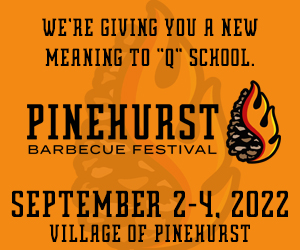 Former Holly Springs baseball player turns to collegiate golf
Former Holly Springs baseball player turns to collegiate golf
By Kurt Dusterberg
Wes Conover grew up with athletic genes on both sides of his family.
His father played small-college basketball and his grandfather starred at Syracuse. So Wes followed suit on the court at Holly Springs High School.
On his mother’s side, he had four cousins who played Division I college baseball. He made the best of those genes too, playing on the 2011 state championship team and drawing offers from Campbell University and UNC Greensboro.
With a solid resume and good athletic lineage, Wes had to make a choice for college.
He chose golf.
Today, Conover is a junior at East Carolina University with three years of athletic eligibility. Prior to last fall, he had never played on a golf team of any kind.
So how does a guy without a golf background wind up on a Division I golf scholarship? Like so many others, Conover caught the golf bug. During his last couple years of high school, he played on weekends. He enjoyed the game, and he wanted to keep up with his younger brother, Tim, who was already an accomplished junior player.
“I was always trying to get good enough to beat him,” Conover says of his brother, who was recently named boys junior golfer of the year by the Carolinas Golf Association. “That was my motivation to be good at golf.”
Soon, he was spending his free time on the practice tee rather than in the batting cage.
“By my senior year, I was playing as much golf as possible and starting to play in tournaments. I had a really good senior year in baseball, but I had found the passion for golf at that time.”
Without much of a golf resume, Conover set a reasonable goal. He enrolled in the PGA Golf Management program at N.C. State, thinking he would like to explore a career in golf. If he couldn’t make the golf team, this was the next best thing.
“I would go out there every day and work at my game with the other kids in the program,” he says. “The golf talent level isn’t as high as a Division I golf school, but I was one of the best players out there.”
After his freshman year, he completed a golf internship in Alabama. One of his bosses saw what he could do on the course and told him to set his sights on a scholarship. That’s when ECU came calling.
“He’s a big, strong kid and he’s got a lot of power,” says Press McPhaul, ECU’s coach. “So he can make a lot of holes play easier than the competition has to. He’s got a good touch and good hands.”
(Remarkably, Conover is not the only former baseball-player-turned golfer on ECU’s team. Eric Brady was an all-state infielder at Green Hope High School in Cary and a third baseman for Duke University before transferring to ECU for golf.)
At 6-foot-2, Conover has used his sturdy frame to qualify for six of seven tournaments for the Pirates. Of course, his fledgling career is a work in progress at this point. That was clear when he played a tournament at TPC Sawgrass last fall. On the Stadium Course, he shot 74 and 82 before firing a 67 in the final round – good for the best score of the tournament.
“I feel like I’ve learned so much about myself in golf in the last year and a half,” Conover says. “Maybe if I would have started earlier I would have done more. Maybe I would be at an even higher level.”
Ah, yes, the what-ifs. Where might Conover be now if he had spent his teenage years pitching and putting instead of bunting and fielding?
“I’m sure there are things about his lack of exposure to golf that costs him in golf IQ and experience,” McPhaul says. “Anything he’s lost in not having a lot of competition is more than made up for from a mentality standpoint. Golf is a game that plays with you and teases you.”
Conover agrees. The success rate in hitting a baseball is low. Recovering from one at-bat to the next is good preparation for golf’s many setbacks.
“From the mental aspect, I think baseball helped me a lot,” Conover says. “If you get a hit three out of 10 times, you’re batting .300. In the pros, those are Hall of Fame numbers. I think you take the same thought pattern to golf, where hitting a bad shot is OK because you’ve got another one right after it.”
Conover knows the learning is just beginning.
“It’s a lot of hard work, and preparation is the key to being successful,” he says. “Your schedule is very hectic, and you’ve got to balance a lot of things. Having that motivation to be good is what makes people successful.”
For a guy who excelled at golf and baseball, it’s good just to have teammates again.
“It was unusual when I got here. It’s a lot different that junior golf, where you go out and just try to do your best on your own,” he says. “Having teammates again is a really awesome thing, having people pushing you to get better and supporting you.”
In the end, it won’t make much difference what Conover lacks in golf preparation. The real story will be where he ends up.
“If he continues to set his mind to it, he can be an all-conference player in college,” McPhaul says. “Does he have the talent to pursue the game professionally? I think without question, yes.”
















